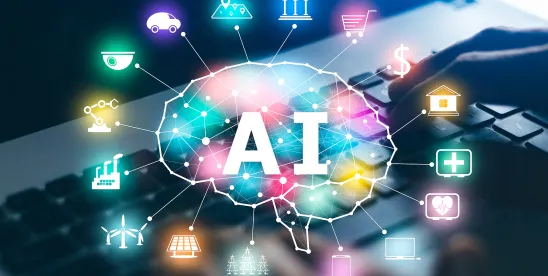AI Insights
Anthropic Settles Landmark Artificial Intelligence Copyright Case

Anthropic’s settlement came after a mixed ruling on the “fair use” where it potentially faced massive piracy damages for downloading millions of books illegally. The settlement seems to clarify an important principle: how AI companies acquire data matters as much as what they do with it.
After warning both the district court and an appeals court that the potential pursuit of hundreds of billions of dollars in statutory damages created a “death knell” situation that would force an unfair settlement, Anthropic has settled its closely watched copyright lawsuit with authors whose books were allegedly pirated for use in Anthropic’s training data. Anthropic’s settlement this week in a landmark copyright case may signal how the industry will navigate the dozens of similar lawsuits pending nationwide. While settlement details remain confidential pending court approval, the timing reveals essential lessons for AI development and intellectual property law.
The settlement follows Judge William Alsup’s nuanced ruling that using copyrighted materials to train AI models constitutes transformative fair use (essentially, using copyrighted material in a new way that doesn’t compete with the original) — a victory for AI developers. The court held that AI models are “like any reader aspiring to be a writer” who trains upon works “not to race ahead and replicate or supplant them — but to turn a hard corner and create something different.”
(For readers unfamiliar with copyright law, “fair use” is a legal doctrine that allows limited use of copyrighted material without permission for purposes like criticism, comment, or — as courts are now determining — AI training. A key test is whether the new use “transforms” the original work by adding something new or serving a different purpose, rather than simply copying it. Think of it as the difference between a critic quoting a novel to review it versus someone photocopying the entire book to avoid buying it.)
After ruling in Anthropic’s favor on this issue, Judge Alsup drew a bright line at acquisition methods. Anthropic’s downloading of over seven million books from pirate sites like LibGen constituted infringement, the judge ruled, rejecting Anthropic’s “research purpose” defense: “You can’t just bless yourself by saying I have a research purpose and, therefore, go and take any textbook you want.”
The settlement’s timing suggests a pragmatic approach to risk management. While Anthropic could claim vindication on training methodology, defending its acquisition methods before a jury posed substantial financial exposure. Statutory damages for willful infringement can reach $150,000 per work, creating potential liability for Anthropic totaling in the billions.
Anthropic is still facing copyright suits from music publishers, including Universal Music Corp. and Concord Music Group Inc., as well as Reddit. The settlement with authors removes one of Anthropic’s many legal challenges. Lawyers for the plaintiffs said, “[t]his historic settlement will benefit all class members,” promising to announce details in the coming weeks.
This settlement solidifies the principles established in Judge Alsup’s prior ruling: how AI companies acquire training data matters as much as what they do with it. The court’s framework permits AI systems to learn from human cultural output, but only through legitimate channels.
For practitioners advising AI projects and companies, the lesson is straightforward: document data sources meticulously and ensure the legitimate acquisition of data. AI companies that previously relied on scraped or pirated content face strong incentives to negotiate licensing agreements or develop alternative training approaches. Publishers and authors gain leverage to demand compensation, even as the fair use doctrine limits their ability to block AI training entirely.
The Anthropic settlement marks neither a total victory nor a defeat for either side, but rather a recognition of the complex realities governing AI and intellectual property. It also remains to be seen what impact it will have on similar pending cases, including whether this will create a pattern of AI companies settling when facing potential class actions. In this new landscape, the legitimacy of the process matters as much as the innovation of the outcome. That balance will define the next chapter of AI development. Under Anthropic, it is apparent that to maximize chances of AI models constituting fair use, developers should use a bookstore, not a pirate’s flag.
AI Insights
Artificial intelligence helps break barriers for Hispanic homeownership

For many Hispanics the road to homeownership is filled with obstacles, including loan officers who don’t speak Spanish or aren’t familiar with buyers who may not fit the boxes of a traditional mortgage applicant.
Some mortgage experts are turning to artificial intelligence to bridge the gap. They want AI to help loan officers find the best lender for a potential homeowner’s specific situation, while explaining the process clearly and navigating residency, visa or income requirements.
This new use of a bilingual AI has the potential to better serve homebuyers in Hispanic and other underrepresented communities. And it’s launching as federal housing agencies have begun to switch to English-only services, part of President Donald Trump’s push to make it the official language of the United States. His executive order in August called the change a way to “reinforce shared national values, and create a more cohesive and efficient society.”
The number of limited-English households tripled over the past four decades, according to the Urban Institute, a nonprofit research organization based in Washington, D.C. The institute says these households struggle to navigate the mortgage process, making it difficult for them to own a home, which is a key factor in building generational wealth.
The nonprofit Hispanic Organization of Mortgage Experts launched an AI platform built on ChatGPT last week, which lets loan officers and mortgage professionals quickly search the requirements of more than 150 lenders, instead of having to contact them individually.
The system, called Wholesale Search, uses an internal database that gives customized options for each buyer. HOME also offers a training program for loan officers called Home Certified with self-paced classes on topics like income and credit analysis, compliance rules and intercultural communication.
Cubie Hernandez, the organization’s chief technology and learning officer, said the goal is to help families have confidence during the mortgage process while pushing the industry to modernize. “Education is the gateway to opportunity,” he said.
HOME founder Rogelio Goertzen said the platform is designed to handle complicated cases like borrowers without a Social Security number, having little to no credit history, or being in the U.S. on a visa.
Loan officer Danny Velazquez of GFL Capital said the platform has changed his work. Before, he had to contact 70 lenders one by one, wait for answers and sometimes learn later that they wouldn’t accept the buyer’s situation.
The AI tool lets him see requirements in one place, narrow the list and streamline the application. “I am just able to make the process faster and get them the house,” Velazquez said.
One of Velazquez’s recent clients was Heriberto Blanco-Joya, 38, who bought his first home this year in Las Vegas. Spanish is Blanco-Joya’s first language, so he and his wife expected the process to be confusing.
Velazquez told him exactly what paperwork he needed, explained whether his credit score was enough to buy a home, and answered questions quickly.
“He provided me all the information I needed to buy,” Blanco-Joya said. “The process was pleasant and simple.”
From their first meeting to closing day took about six weeks.
Mortgage experts and the platform’s creators acknowledge that artificial intelligence creates new risks. Families rely on accurate answers about loans, immigration status and credit requirements. If AI gives wrong information, the consequences could be serious.
Goertzen, the CEO of HOME, said his organization works to reduce errors by having the AI pull information directly from lenders and loan officers. The platform’s database is updated whenever new loan products appear, and users can flag any problems to the developers.
“When there are things that are incorrect, we are constantly correcting it,” Goertzen said. “AI is a great tool, but it doesn’t replace that human element of professionalism, and that is why we are constantly tweaking and making sure it is correct.”
Jay Rodriguez, a mortgage broker at Arbor Financial Group, said figuring out the nuances of different investors’ requirements can mean the difference between turning a family away and getting them approved.
Rodriguez said HOME’s AI platform is especially helpful for training new loan officers and for coaching teams on how to better serve their communities.
Better Home & Finance Holding Company, an AI-powered mortgage lender, has created an AI platform called Tinman. It helps loan officers find lenders for borrowers who have non-traditional income or documents, which is common among small business owners.
They also built a voice-based assistant called Betsy that manages more than 127,000 borrower interactions each month. A Spanish-language version is in development.
“Financial literacy can be challenging for Hispanic borrowers or borrowers in other underserved populations,” Pierce said. “Tools like Betsy can interact and engage with customers in a way that feels supportive and not judgmental.”
AI Insights
Artificial intelligence helps break barriers for Hispanic homeownership – The Killeen Daily Herald

Artificial intelligence helps break barriers for Hispanic homeownership The Killeen Daily Herald
Source link
AI Insights
Who’s winning the U.S.-China artificial intelligence race? – The Japan Times
-

 Business6 days ago
Business6 days agoThe Guardian view on Trump and the Fed: independence is no substitute for accountability | Editorial
-
Tools & Platforms3 weeks ago
Building Trust in Military AI Starts with Opening the Black Box – War on the Rocks
-

 Ethics & Policy1 month ago
Ethics & Policy1 month agoSDAIA Supports Saudi Arabia’s Leadership in Shaping Global AI Ethics, Policy, and Research – وكالة الأنباء السعودية
-

 Events & Conferences4 months ago
Events & Conferences4 months agoJourney to 1000 models: Scaling Instagram’s recommendation system
-

 Jobs & Careers2 months ago
Jobs & Careers2 months agoMumbai-based Perplexity Alternative Has 60k+ Users Without Funding
-

 Education2 months ago
Education2 months agoVEX Robotics launches AI-powered classroom robotics system
-

 Funding & Business2 months ago
Funding & Business2 months agoKayak and Expedia race to build AI travel agents that turn social posts into itineraries
-

 Podcasts & Talks2 months ago
Podcasts & Talks2 months agoHappy 4th of July! 🎆 Made with Veo 3 in Gemini
-

 Podcasts & Talks2 months ago
Podcasts & Talks2 months agoOpenAI 🤝 @teamganassi
-

 Education2 months ago
Education2 months agoAERDF highlights the latest PreK-12 discoveries and inventions


